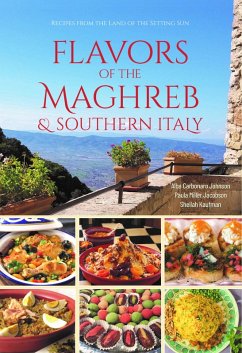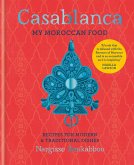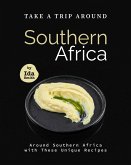Explore the unique Mediterranean flavors of the Maghreb region with over 100 authentic recipes!
The Arabic word Maghreb means land where the sun sets. The Maghreb is a multicultural Mediterranean region of North Africa which includes Tunisia, Algeria, Morocco, Mauritania, and Libya. It is bordered by the beautiful Mediterranean Sea, and in ancient times, the Maghreb included Spain, Sicily, and Malta. The history of this region is completely different from that of the rest of Africa, and today's cuisine reflects those differences. It's an inviting cuisine, made with fresh local and seasonal ingredients, that carries a diversity of flavors and time-honored traditions to the Maghreb table.
Before the Arab conquest, the Phoenicians, Greeks, Romans, Byzantines, and later the Italians and French, colonized the Maghreb. Each new culture that entered the region left unique influences and together they created a multicultural cuisine using aromatic spices, fresh herbs, citrus, dried fruits, nuts, fresh fish, lamb, chicken, pasta, rice, and copious fresh vegetables. Ancient civilizations such as Phoenicians and Romans spread the cultivation of wheat. The Moors brought citrus and olives from Spain. The Berbers gave birth to couscous. Fennel, peas, and artichokes arrived with the Italian settlement, and the baguette, salad Niçoise, and mayonnaise were brought by the French when they colonized the area. Thus, the food of Maghreb became a mélange of Sicilian, French, Spanish, Arabic, and Berber cuisine.
Three generations ago, Alba Carbonaro Johnson's family emigrated from Sicily to Tunisia. With this unique cultural vantage point, she learned to cook traditional Maghrebi dishes as well as the southern Italian specialties of her family. This book brings the best of both these Mediterranean cuisines together in simple, delicious recipes that readers will turn to again and again.
Sample recipes:
The Arabic word Maghreb means land where the sun sets. The Maghreb is a multicultural Mediterranean region of North Africa which includes Tunisia, Algeria, Morocco, Mauritania, and Libya. It is bordered by the beautiful Mediterranean Sea, and in ancient times, the Maghreb included Spain, Sicily, and Malta. The history of this region is completely different from that of the rest of Africa, and today's cuisine reflects those differences. It's an inviting cuisine, made with fresh local and seasonal ingredients, that carries a diversity of flavors and time-honored traditions to the Maghreb table.
Before the Arab conquest, the Phoenicians, Greeks, Romans, Byzantines, and later the Italians and French, colonized the Maghreb. Each new culture that entered the region left unique influences and together they created a multicultural cuisine using aromatic spices, fresh herbs, citrus, dried fruits, nuts, fresh fish, lamb, chicken, pasta, rice, and copious fresh vegetables. Ancient civilizations such as Phoenicians and Romans spread the cultivation of wheat. The Moors brought citrus and olives from Spain. The Berbers gave birth to couscous. Fennel, peas, and artichokes arrived with the Italian settlement, and the baguette, salad Niçoise, and mayonnaise were brought by the French when they colonized the area. Thus, the food of Maghreb became a mélange of Sicilian, French, Spanish, Arabic, and Berber cuisine.
Three generations ago, Alba Carbonaro Johnson's family emigrated from Sicily to Tunisia. With this unique cultural vantage point, she learned to cook traditional Maghrebi dishes as well as the southern Italian specialties of her family. This book brings the best of both these Mediterranean cuisines together in simple, delicious recipes that readers will turn to again and again.
Sample recipes:
- Crostini with Dill and Pecorino
- Spicy Cauliflower Minestra
- Couscous for Festive Occasions (Seffa)
- Lamb Chops in Dried Fig Sauce
- Baked Whole Bass with Chermoula
- Shrimp Speidini with Golden Breadcrumbs and Pistachios
- Rustic Pizza Stuffed with Red Onions, Pine Nuts, and Golden Raisins
- Broccoli Affogati
- Marzipan-Stuffed Dates
Dieser Download kann aus rechtlichen Gründen nur mit Rechnungsadresse in A, D ausgeliefert werden.









